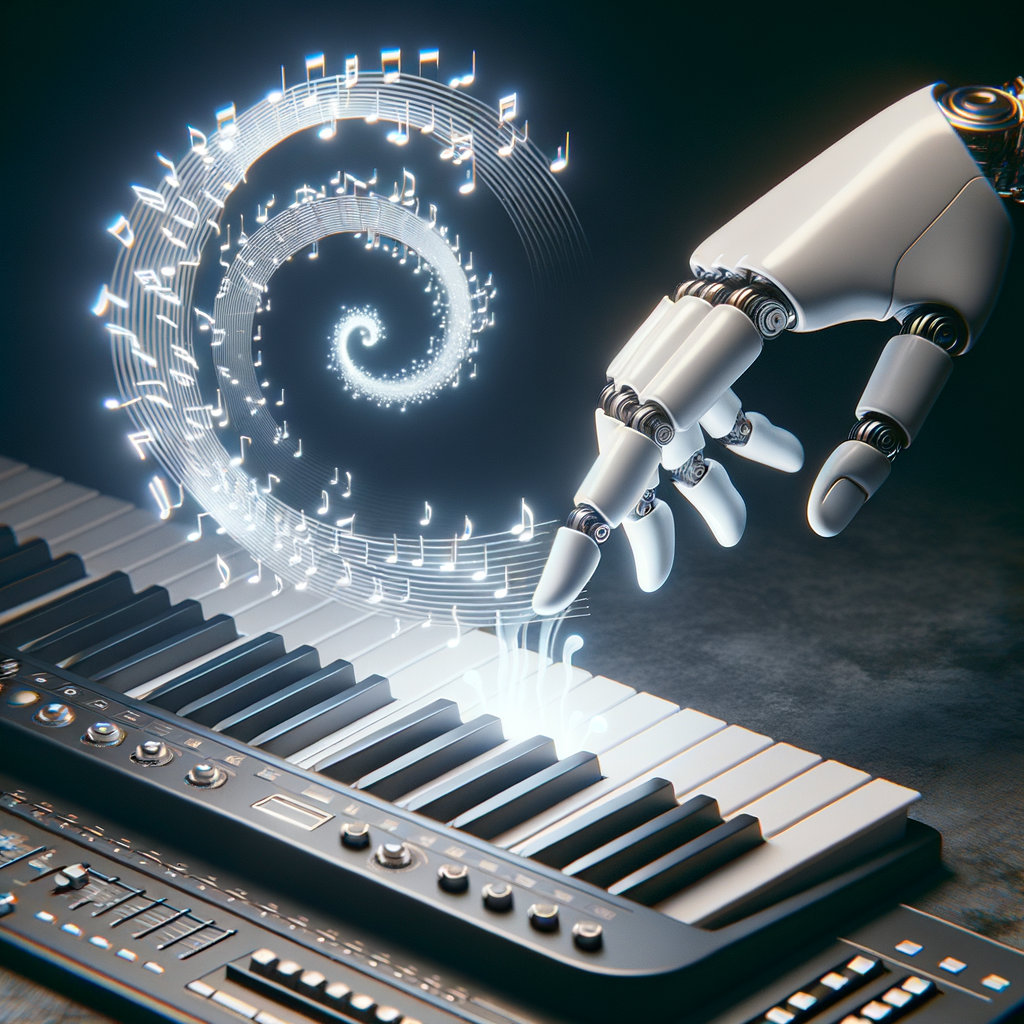
AI and Music: Composing the Soundtrack of the Future
Explore how artificial intelligence is transforming the music industry, from composing new melodies to enhancing audio production. Discover the blend of art and technology that is setting new boundaries in musical creativity.
AI and Music: Composing the Soundtrack of the Future
In recent years, artificial intelligence has been making groundbreaking strides in various fields, and the music industry is no exception. AI is not only reshaping how music is produced but also how it is consumed, analyzed, and appreciated. This blog post will delve into the fascinating intersection of AI and music, unraveling how technology is composing the soundtrack of the future.
The Advent of AI in Music
The journey of AI in music began with simple tasks such as playlist curation and genre classification. However, it wasn't long before AI systems advanced to composing original scores, assisting artists in songwriting, and even performing live improvisations. Companies like OpenAI have introduced language models like Jukedeck, which can generate fully structured compositions with various instruments.
AI-Powered Music Composition
Artificial intelligence uses machine learning algorithms to analyze existing music data and generate new compositions. These compositions are not mere imitations but rather entirely new pieces that adhere to the structures and patterns learned from the existing data. AI tools like Google's Magenta project are at the forefront of using neural networks to create art and music, allowing users to collaborate with AI on original compositions.
Enhancing Music Production
Beyond composing, AI is revolutionizing music production by offering tools that can automate tedious processes such as mixing and mastering. AI-powered software can adjust levels, equalize tracks, and even predict which parts of a song might become a hit based on contemporary musical trends. This automation allows music producers to focus more on the creative aspects of production.
Personalized Music Experiences
As AI advances, so does its ability to personalize music recommendations. Platforms such as Spotify and Apple Music employ AI algorithms to track users' listening habits and suggest new tracks that align with their preferences. This personalized approach not only enhances user experience but also helps artists reach a wider audience.
AI in Live Performances
AI is not confined to studio settings—it is also making its way into live performances. From holographic concerts featuring virtual avatars of late artists to live improvisation with AI musicians, technology is expanding the notion of what a live music experience can be. These AI-integrated performances offer audiences a unique blend of technology and artistry.
The Ethical and Creative Implications
While the integration of AI in music brings numerous benefits, it also raises ethical questions. The most significant concern revolves around authorship and originality. If a machine generates a musical piece, who owns the rights to that music? This debate is ongoing and is one of the many legal considerations surrounding AI-generated art.
Moreover, as AI becomes more adept at creating music, there is a question of whether it could replace human creativity. However, many experts believe that rather than replacing artists, AI acts as a tool that enhances human creativity by providing new perspectives and possibilities that may not have been considered otherwise.
The Future of AI in Music
As we look to the future, AI's role in music continues to expand. Researchers are exploring ways to use AI to assist with music education, helping students learn instruments and theory more interactively. AI's ability to analyze and understand complex musical compositions could also lead to innovations in music therapy, providing new treatments for emotional and psychological conditions.
Conclusion
The intersection of AI and music is a fascinating frontier, merging creativity and technology in groundbreaking ways. While AI might compose the notes, the human spirit continues to guide the melody. As AI tools become more sophisticated, their role in shaping the future of music will only grow, offering new opportunities for collaboration and creativity across the industry.
As we embrace this technological symphony, it becomes clear that AI in music isn't just about creating new sounds—it's about discovering new ways to connect with the human soul through art.